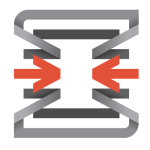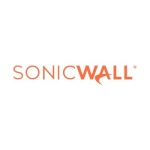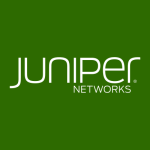We needed stateful inspection, logging, integration with Active Directory, and the ability to monitor devices using standard SNMP for use cases. Now, with the tool's Skyline product and OpenTelemetry, we can monitor it through Prometheus and Grafana. It has all the features we needed when we certified the solution.
Integration with Active Directory, IPS, standard VPN, and the firewall itself are the most valuable features for us. We haven't yet certified or aren't using Application Control, anti-bot, or anti-virus features.
Significant improvements have been made in the product. I started working with the R65 code and then upgraded to R74.40. When they transitioned from R77.30 to R80.x, they made major back-end modifications, switching from a flat file system to Solaris and Postgres. This was a big step that neither customers nor their support staff were fully prepared for.
Now, they're adding more features due to the increased flexibility of the new back-end. The main improvement I'd suggest is better preparation when introducing new features. Before releasing, they must train their support staff to troubleshoot these new features. The transition from R77.30 to R80.x was problematic due to a lack of preparation by Check Point, customers, and support.
Sizing is crucial, but we've never had issues with the products we've sized for each environment. The Maestro solution provides a lot of flexibility. On a scale of one to ten, with ten being the highest scalability, I'd rate it a ten.
I use Palo Alto firewalls. Check Point NGFW was the first to invent the stateful inspection firewall. They focus more on security and try to keep their motto of "keep security simple". They don't get bogged down in marketing or complicated terminology when using their products.
Even enabling a firewall blade on Palo Alto requires learning about different sync ports, how sync ports differ between chassis, and navigating through multiple GUI tabs for configuration. It's not as straightforward.
On the other hand, Check Point NGFW has kept things very simple for deployment. You set it up once, and then you can repeat the same process repeatedly.
On a scale of one to ten, with ten being the easiest, I'd rate the initial setup as ten. The process is straightforward: you rack and stack, configure the management code, create a standard policy, establish SIC, and push the policy. This process has remained consistent over the years.
For deployment, it took us longer than the typical two weeks because we had to design solutions for different scenarios. Check Point offers various options, such as clustering solutions, Maestro solutions, and standalone solutions. We had different use cases—some required standard clusters with ClusterXL, while others needed scalability solutions like Maestro. We also had to factor in sizing considerations.
The certification process took about the same amount of time as other products. We've been using the Maestro solution for a while now, so when new platforms are released, there isn't much change required beyond certifying the new hardware and ensuring backward compatibility with our certified solution.
Initially, it took a little more than two weeks to certify. However, the actual deployment still follows the same standard process and is actually easier now than it was in the past.
We call the team responsible for deploying certified solutions to the service delivery team. It's made up of two groups: build services and service delivery. The build services team works with our networking team to ensure our network and peering devices are set up right to host the firewall.
The service delivery team focuses more on the firewall itself. We need about three or four extra people from build services for firewall deployment. They act as go-betweens with the network team, ensuring our firewall solution works well with the peering devices when we put it in place. The build services team is important because they ensure everything fits together properly when we set up our firewall.
For maintenance, the solution is pretty stable. We have a global team, but a separate team handles regular firewall changes and daily operations. For support, we have about ten people total - three groups of three people each. This team manages around 1200 firewalls, including Check Point and Palo Alto devices.
Check Point NGFW is much cheaper than other platforms, including Palo Alto. Its scalability, especially with the Maestro solution, is a big advantage. If you're looking for good security at a reasonable price with a good return on investment, I believe Check Point NGFW is the way to go.
I've been dealing with Check Point NGFW for my entire career. I started with their Stateful Inspection feature. The term "Next Generation Firewall" is just marketing. Check Point's UTM product was designed from the ground up with next-generation features. They have a feature called Blaze. Besides stateful inspection firewalls and VPNs, they offer IPS, application control, URL filtering, antivirus, and antibot. You can also integrate it with third-party tools like Active Directory for authentication. This combination of features is what's called a next-generation firewall.
Other vendors use terms like app ID or user ID. They focus less on ports and more on ensuring services match their intended use. For example, if port 22 is enabled, it should be for SSH service, not something else. We use both Check Point NGFW and other products. I think if you commit to one vendor's approach, it can be hard to switch late.

















